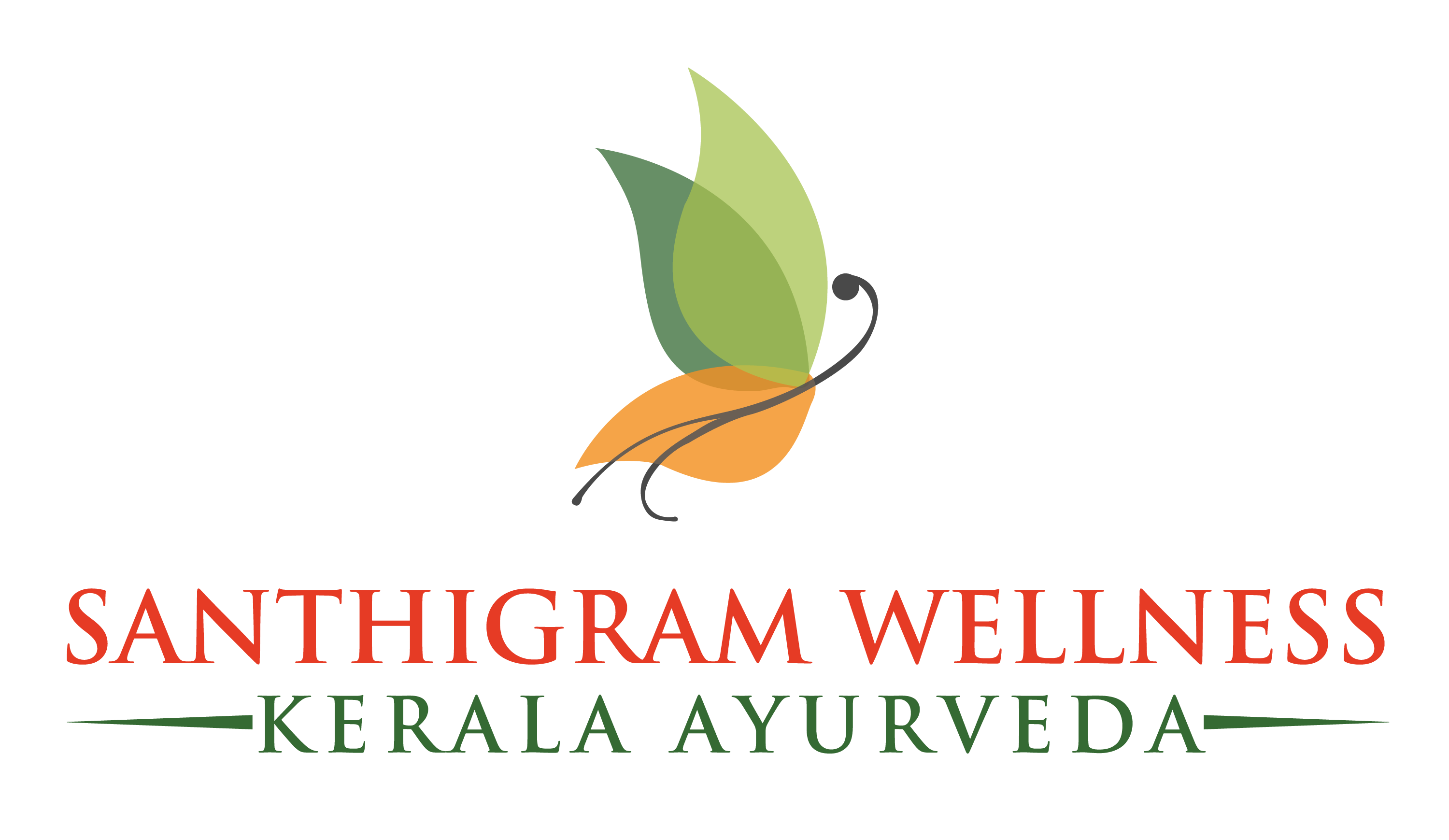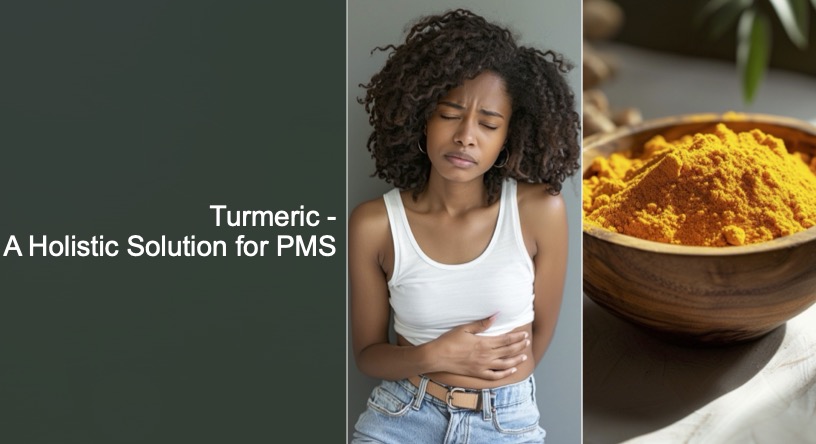Introduction to PMS (Premenstrual Syndrome)
Premenstrual syndrome (PMS) is a group of physical and emotional symptoms that occur in the one to two weeks leading up to a woman’s menstrual period. An estimated 75% of women of childbearing age experience premenstrual symptoms, with varying degrees of severity. Common symptoms include mood swings, fatigue, irritability, bloating, and cramps. These symptoms can significantly impact daily life and overall well-being, making it essential to find effective relief strategies.
Understanding Ayurveda’s Perspective on Women’s Health
While the exact cause of PMS remains unclear, many specialists believe that hormonal fluctuations, particularly progesterone levels in the second half of the menstrual cycle, play a role. genetic predisposition and environmental factors are also believed to play a role.
Ayurveda, with its specialized branch Stree Roga1, offers a holistic approach to women’s health. It incorporates dietary modifications, herbal remedies, lifestyle changes, and specific therapies to address various conditions, including PMS. In Ayurveda, PMS is believed to be a result of an imbalance in the three Doshas. When Vata is imbalanced, it can manifest as PMS symptoms like anxiety, mood swings, irregular bowel movements, and abdominal cramps. An imbalance in Pitta can cause PMS symptoms like irritability, headaches, hot flashes, abnormal bleeding, and breast tenderness. Kapha Dosha imbalance can lead to symptoms like bloating, water retention, nausea, and fatigue. Treating imbalances in these three Doshas has been associated with positive changes in treating disorders related to women’s health. One of the cornerstones of Ayurveda is its emphasis on the therapeutic potential of herbal medicine.
Herbal Remedies for Balancing Hormones
Ayurveda recommends several herbs to help alleviate PMS symptoms. However, it’s important to consult a healthcare professional before consuming any herbal remedies, especially if you are pregnant, breastfeeding, or have any underlying medical conditions.
Here are some examples of herbs commonly used in Ayurveda for PMS:
- Ashwagandha: Revered for its stress-relieving properties 2.
- Shatavari: Valued for supporting hormonal balance and reproductive health, particularly considered a Vata and Pitta sedative in Ayurveda3.
- Brahmi: Known to help calm the mind and reduce anxiety 4.
These herbs can be consumed in various ways, including as teas, powders mixed with warm milk, or supplements. It’s important to note that the effectiveness and dosage of these herbs can vary depending on the individual. Consulting a qualified Ayurvedic practitioner can help determine the most suitable option for you.
Dietary Guidelines to Alleviate PMS
Ayurvedic dietary guidelines stress the importance of eating seasonally and incorporating foods that balance your predominant dosha. For example, warm, cooked foods are recommended to calm Vata, while cooling foods can help reduce Pitta. Avoiding processed foods, caffeine, and excessive sugar can also aid in reducing PMS discomfort.
Lifestyle Practices for PMS Relief
Daily routines (Dinacharya) and self-care practices are crucial in Ayurveda. Long-term regular Yoga5 practices have been shown to relieve PMS symptoms and enhance relaxation. Pranayama6 is also a safe and proven method for improving PMS symptoms and women’s quality of life.
Mindfulness and Stress Management
Managing stress is vital in alleviating PMS symptoms. Ayurvedic strategies like meditation and guided relaxation can promote mental well-being. Practicing mindfulness can help you stay grounded and better manage emotional ups and downs.
Personalized Ayurvedic Approach
Determining your predominant dosha can help you tailor remedies more effectively. Personalized approaches have shown success in managing PMS symptoms. Case studies7 and testimonials often highlight the efficacy of individualized Ayurvedic plans in achieving better menstrual health.
Conclusion
Ayurveda’s ancient wisdom offers a natural approach to managing PMS. By incorporating a holistic blend of herbal remedies, dietary adjustments, and lifestyle practices, you can reclaim balance and enhance your overall menstrual health and well-being. This holistic approach goes beyond simply treating symptoms. Modern research on the active ingredients in Ayurvedic herbs6 opens doors to exploring their potential benefits in addressing PMS and a range of other reproductive health concerns.
References
1. Priyanka, Panda JK, Tanwar S. Concept of Artava and its applied aspect in Stree Roga. Journal of Ayurveda and Integrated Medical Sciences. 2024;9(1):137-142. doi:10.21760/jaims.9.1.19
2. Patibandla S, Gallagher JJ, Patibandla L, Ansari AZ, Qazi S, Brown SF. Ayurvedic Herbal Medicines: A Literature Review of Their Applications in Female Reproductive Health. Cureus. 2024;16(2):e55240. doi:10.7759/cureus.55240
3. Shifali T, Kaurav H, Chaudhary G. Shatavari (Asparagus Racemosus) – The Best Female Reproductive Tonic. International Journal of Research and Review. 2021;8(5):12.
4. Khot SG, Tubaki BR, Gonugade VB. Efficacy of Brahmi vati in generalised anxiety disorder – Randomized double blind comparative clinical trial. J Ayurveda Integr Med. 2022;13(2):100552. doi:10.1016/j.jaim.2022.100552
5. Korkem Yorulmaz D, Ertarakcı GL, Yıldırım Sahan T, Turker D. The effect of long-term, regular yoga on the pain and quality of life in women with premenstrual syndrome: A randomized controlled, single-blinded trial. Health Care Women Int. Published online February 12, 2024:1-13. doi:10.1080/07399332.2023.2283425
6. Feula AJM, Yerrabelli D, Pal GK. Effect of pranayama on sympatho-vagal imbalance and cognitive deficit in premenstrual syndrome. J Family Med Prim Care. 2024;13(1):259-264. doi:10.4103/jfmpc.jfmpc_1104_237. A A. Ayurvedic management of Premenstrual Syndrome – A Case Study. Journal of Ayurveda and Integrated Medical Sciences. 2023;8(1):207-212.

